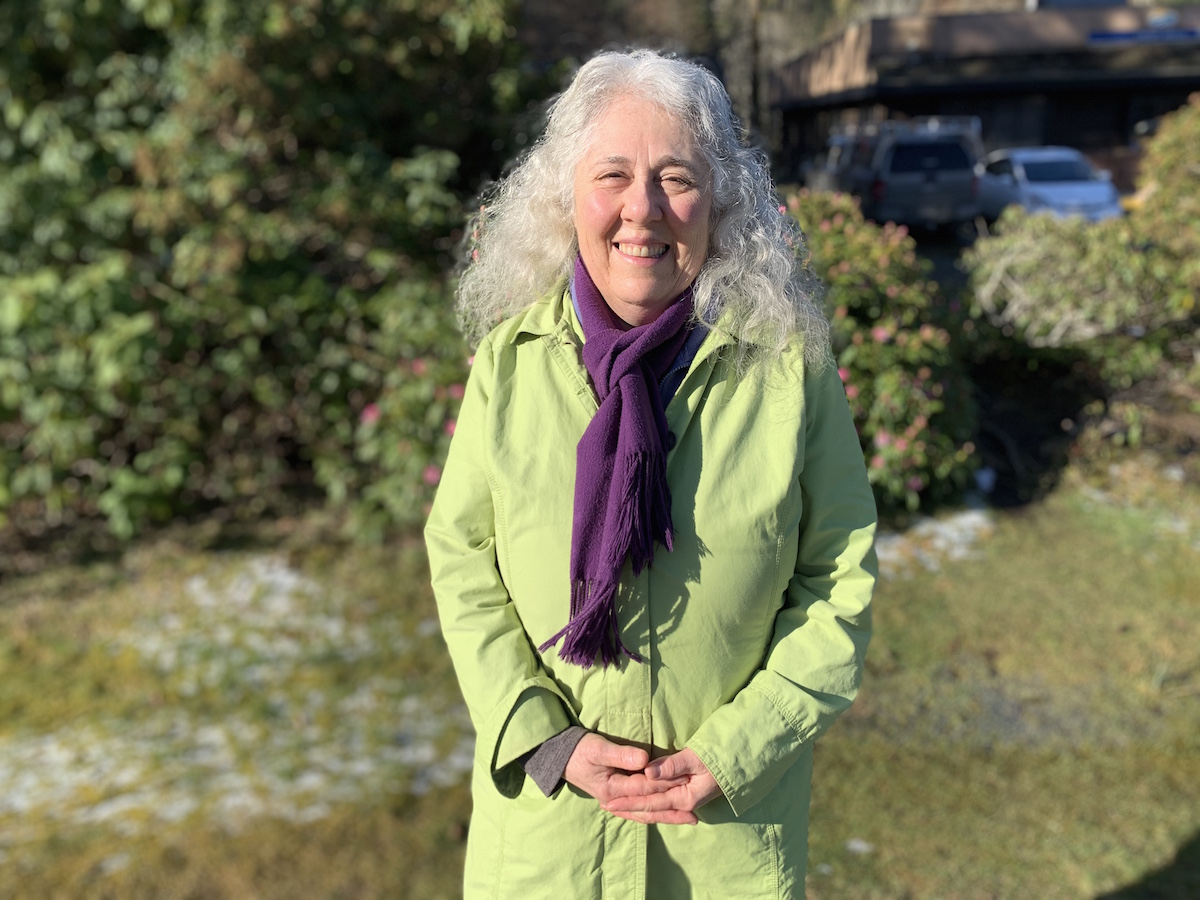Support strong Canadian climate journalism for 2025
I’m keen to get that vaccine. That’s Sulyn Cedar’s new mantra.
“I like that phrase because it rhymes,” says the Quadra Island senior and self-described earth-activist grandma with a laugh.
Cedar is thrilled Quadra and neighbouring Cortes Island are among the 30 smaller, remote communities included in Island Health’s whole community approach to COVID-19 vaccinations.
“I was absolutely thrilled when I heard,” she said. “I got goosebumps.”
A community approach means Island Health teams will visit and vaccinate people in communities with less than 4,000 residents that also face transportation challenges — such as being accessible only by air or ferry, or more than a three-hour drive from a hospital.
It also means the entire adult population may get the chance of being vaccinated when clinics are set up, according to Island Health.
Cedar, 67, said she’s eager to get her shots — especially on the island and sooner than she anticipated based on the B.C.-wide vaccination schedule.
As a caretaker for the three school-aged grandsons in her family bubble, and given her age, Cedar is happy to drive down her risk of catching COVID-19.
“I want to stay alive through these times. I'd like to keep being a grandmother,” Cedar said, joking that her grandkids, all under the age of seven, are typically “host organisms” for whatever cold or flu that crosses their path.
“Plus, I want to protect my community. I’m a team player, you know.”
Dr. Steve Hughes with the Quadra Island Medical Clinic also thinks it is great news.
“We're all in favour of it, and I think all the medical clinics here are very happy to help support it,” said Hughes, adding he expects to hear more about definite dates for the rollout as April approaches.
Seniors are a sizable demographic on the islands, Hughes said, noting older people are at greater risk from the virus and can find travelling off island a challenge.
On Quadra and Cortes respectively, 29 per cent and 28 per cent of the population is aged 65 and over, compared with the provincial rate of 18 per cent, and 17 per cent nationally.
“We’d also rather (Island Health) bring the vaccines here rather than have people struggling with ferries and … going back and forth and bringing the virus here,” he said.
Island Health advised the clinic Friday that there are positive cases of COVID-19 on Quadra, Hughes said.
The news demonstrates that people still need to follow pandemic protocols, such as wearing masks and physical distancing, despite the advance in vaccinations, Hughes said.
“It’s just a reminder to everyone to still pay attention to basic COVID-19 hygiene measures,” he said.
“Even with the vaccines, the virus can still flare up and spread.”
Cortes Island regional director Noba Anderson said the community wide approach will mean residents won’t have to take a two-ferry journey to Campbell River just to get immunized.
“To provide vaccination to small communities that have less medical services, it's a fantastic approach,” Anderson said.
It especially makes sense for remote First Nation communities with multigenerational households, she added.
“First Nation communities have a different cultural way of being with each other, and families are left trying to isolate people in their homes, and it’s just much less viable,” Anderson said.
Communities designated to receive vaccinations will get more specifics once the clinic dates are announced, Island Health said in an email Monday.
If residents over the age of 80 in designated communities don’t hear about the vaccination clinics before April 12, they should phone Island Health’s call centre the week their age group is eligible, and arrangements will be made for vaccinations close to home.
Cedar acknowledges she has preferences about what type of vaccine she’d like when the community-wide clinic arrives on Quadra. But she’s going to follow the advice of public health officials and take what’s on offer.
Plus, vaccinations are a privilege that people in less-wealthy countries are being denied, Cedar added.
“Honestly, at this point, I'm getting whatever comes along.”
Rochelle Baker / Local Journalism Initiative / Canada’s National Observer






Comments